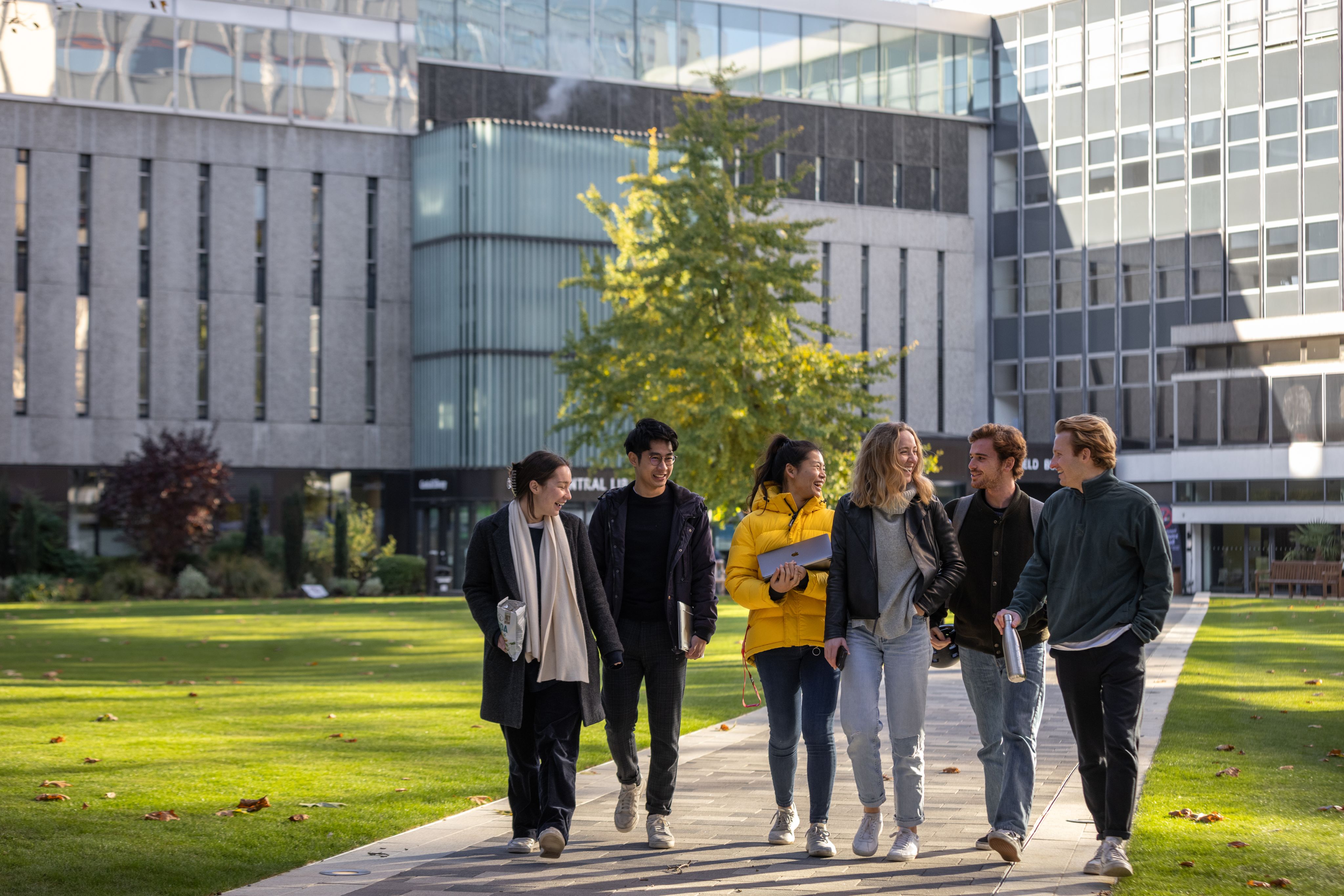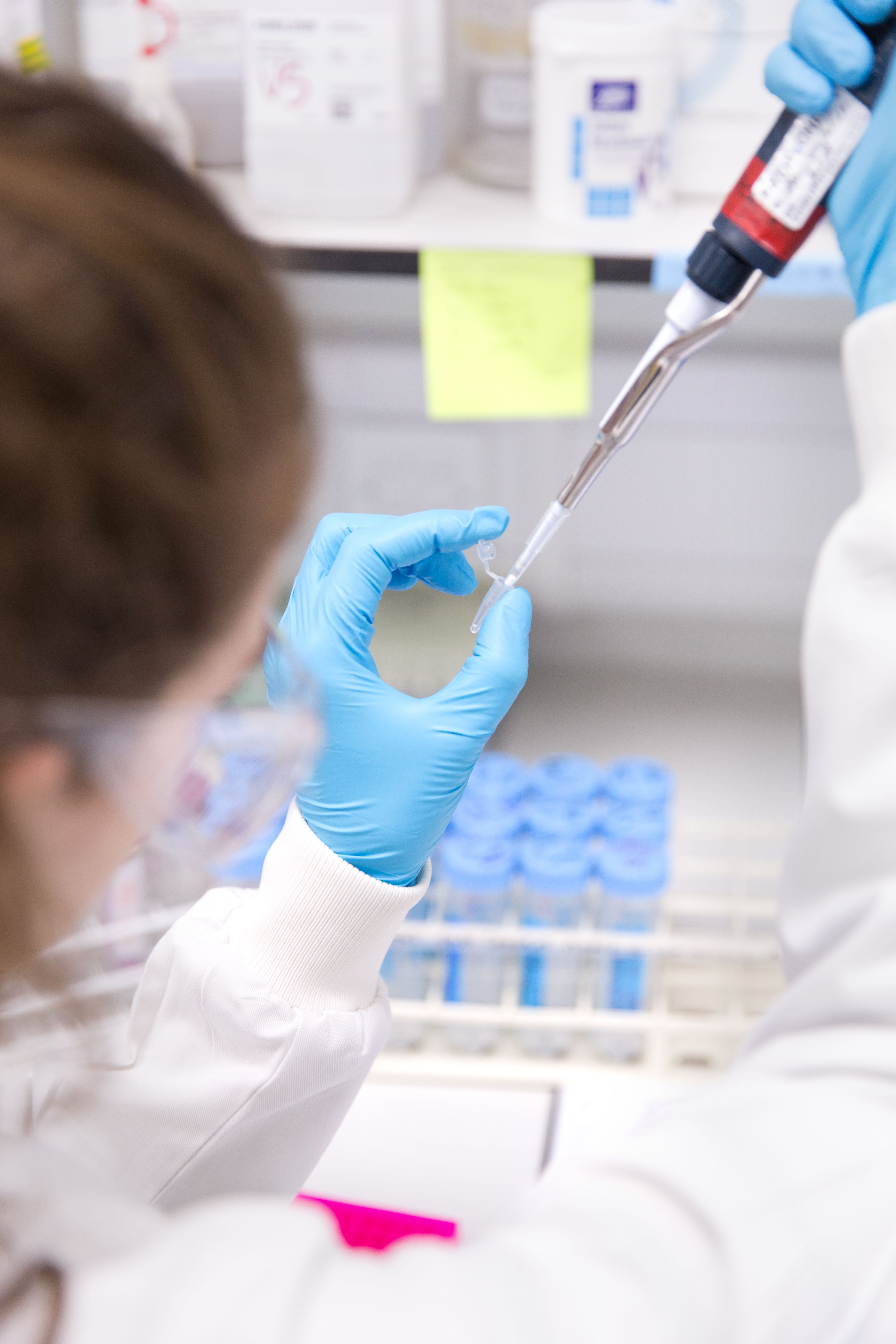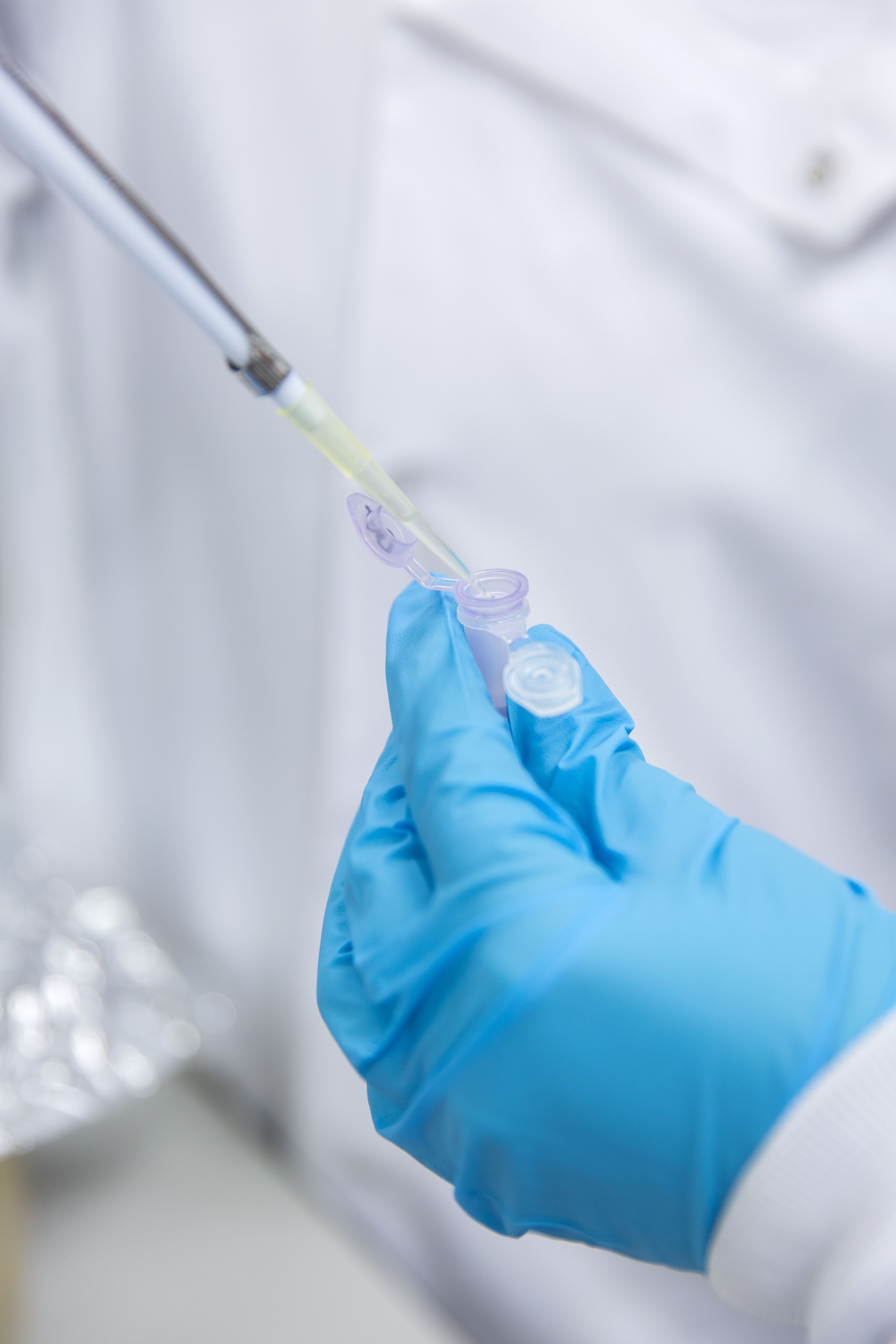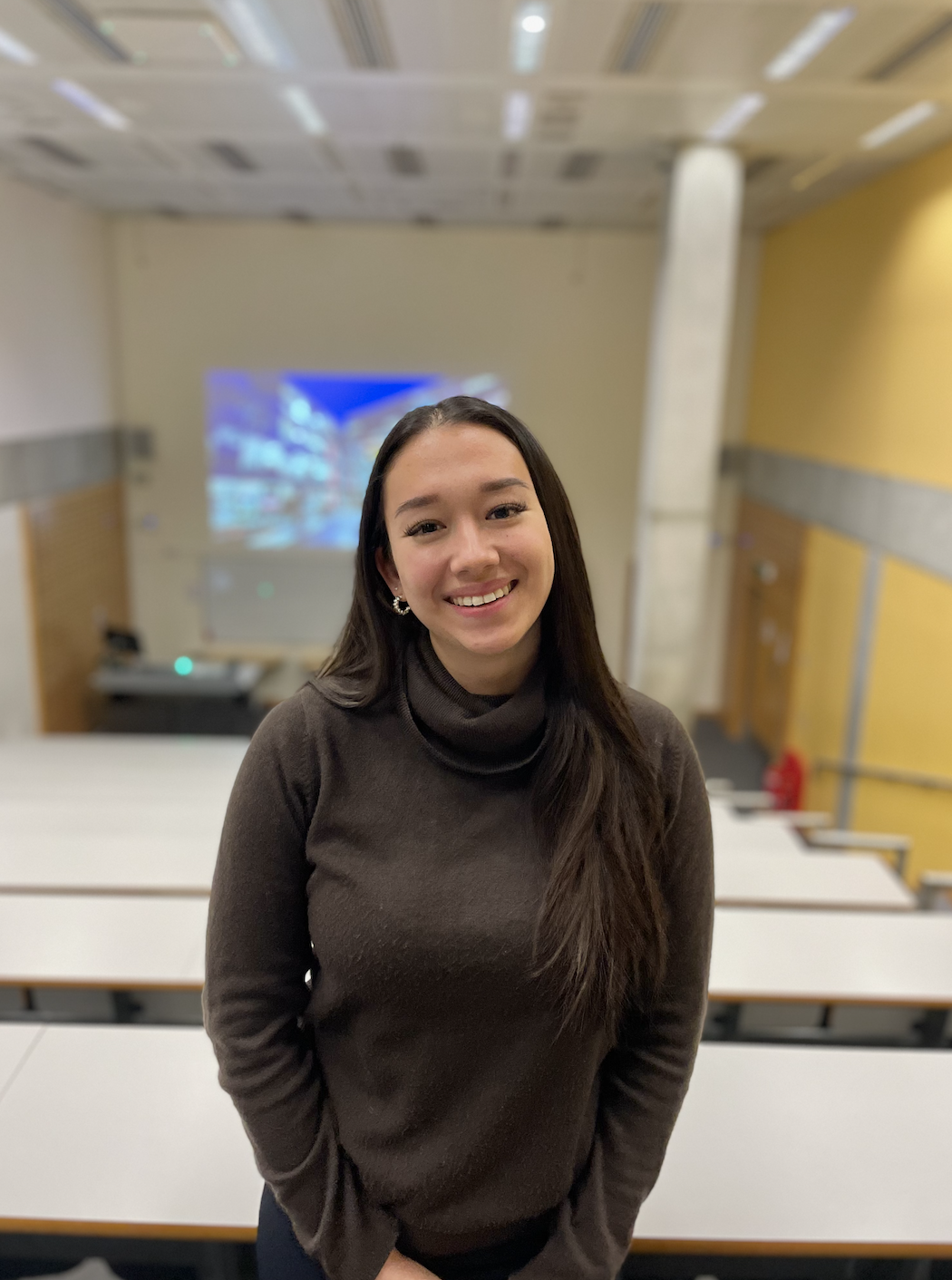Catherine
MSc Applied Bioscience and Biotechnology

I moved to London in 2019 to study my undergraduate degree in Biomedical Science. I had a passion for science but did not know the exact field I wanted to get into.
During my undergraduate studies, Biotechnology caught my attention because of the exploitation of biological processes for industrial and pharmaceutical use.
Drawing from my strong foundation in immunology, stem cell biology, and genetics, I was eager to explore how these concepts could be applied in the development of therapeutics and cutting-edge technology.
To achieve my goals, I decided to pursue a Master’s degree at Imperial College London in Applied Bioscience and Biotechnology. The course modules are tailored to the emerging field of biotechnology and have provided me with a comprehensive overview of the various ways in which science can be applied. I’ve had the opportunity to explore modules such as insect biotechnology and synthetic biology at the same time as learning new skills such as coding with Python.
Python is a high-level, general-purpose programming language and is commonly used in biotechnology research for data analysis and visualisation. Bioinformatics is becoming increasingly important in the biotechnology sector and learning how to code with Python is a powerful skill as it will continue to play an important role in the years to come.
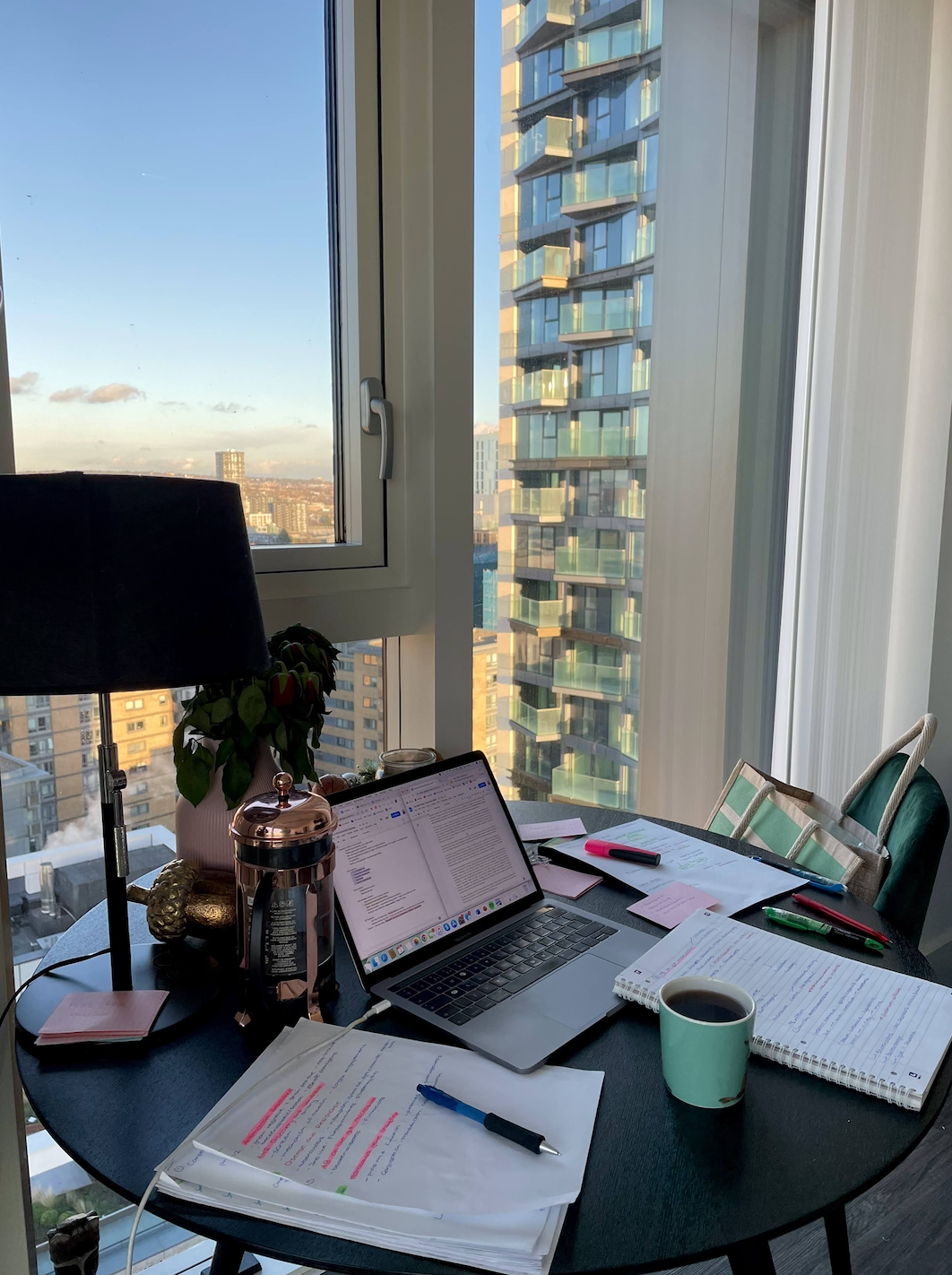
What drew me to Imperial
Imperial is a renowned institution that has a strong commitment to solving real-world problems. When I was a prospective student, I was particularly drawn to the uniqueness of the course structure and the modules offered. To gain further insight into the course structure and student experience, I reached out to several students who were current students. Their responses and feedback reinforced my decision to apply.
Imperial’s world-class facilities and resources have left a strong impression on me, and I feel excited and inspired to be studying here.
When I applied to my course, there were some key factors that I considered. These included research opportunities, reputation within the field, student satisfaction, and quality of teaching. Imperial’s global reputation in the field of science was a significant factor that drew me to the institution.
I knew that Imperial was the right fit for me when I had the opportunity to interact with my fellow students who shared the same passion for science as me. The diversity of interests and perspectives among my peers was exciting and new. In the first week of the course, we had a social mixer which provided me with an excellent opportunity to connect with everyone on the course and learn about their individual journeys. Starting a Master’s degree at a new institution can be overwhelming, however, I found the community at Imperial to be open and welcoming and it was easy to build new friendships and professional connections.
Pursuing my passion
One of the most rewarding aspects of this course has been discovering and pursuing my interests and passions. It is a great feeling knowing that you are working towards something that you have a genuine interest in and that you can show up to a lecture and be fascinated by the information presented by the professor. The most challenging part of the course is having the willingness to learn something that you have not necessarily covered in depth. For instance, when we began the plant biotechnology module, I had some initial hesitation about whether it would be of interest to me. However, I learned the importance of embracing new knowledge and exploring how it can be applied to my studies.
Being part of the Imperial community
Being active in the Imperial community is crucial for personal growth and development; this does not only include being part of societies but also being active in the course.
I have taken on the role of course representative. This has provided me with the opportunity to participate in self-development courses that I have found to be immensely beneficial, and it has also helped me develop negotiation and assertiveness skills, as well as equipped me with the necessary skills for chairing meetings effectively.
As a Master’s student, finding a balance between academic and personal commitments is crucial. I am a member of various societies including ‘Women in Healthcare Leadership’ and ‘Student Action for Refugees.’ However, what I enjoy about societies is that you are not required to attend all meetings which gives you flexibility. I have also taken up other activities including ashtanga yoga, aerial hoop, and spinning. I find that taking some time out of your day to look after your health and well-being is important for success in your studies.
Life as an international student in London
As an international student, I found it easy to adapt to the culture and way of living in London. London is so diverse and multicultural, and you will always find a piece of home when you are here. South Kensington is a beautiful and vibrant area with lots of green spaces, cultural attractions, and restaurants.
I have taken the opportunity of living in London to explore the city with friends by going to musicals, and museums, and immersing myself in the city’s historical and iconic locations. I come from a town in Norway with a population of 130,000 people, the abundance of people on the streets and in the tube initially overwhelmed me, however, I have come to appreciate the city’s vibrancy as there is always something to do.

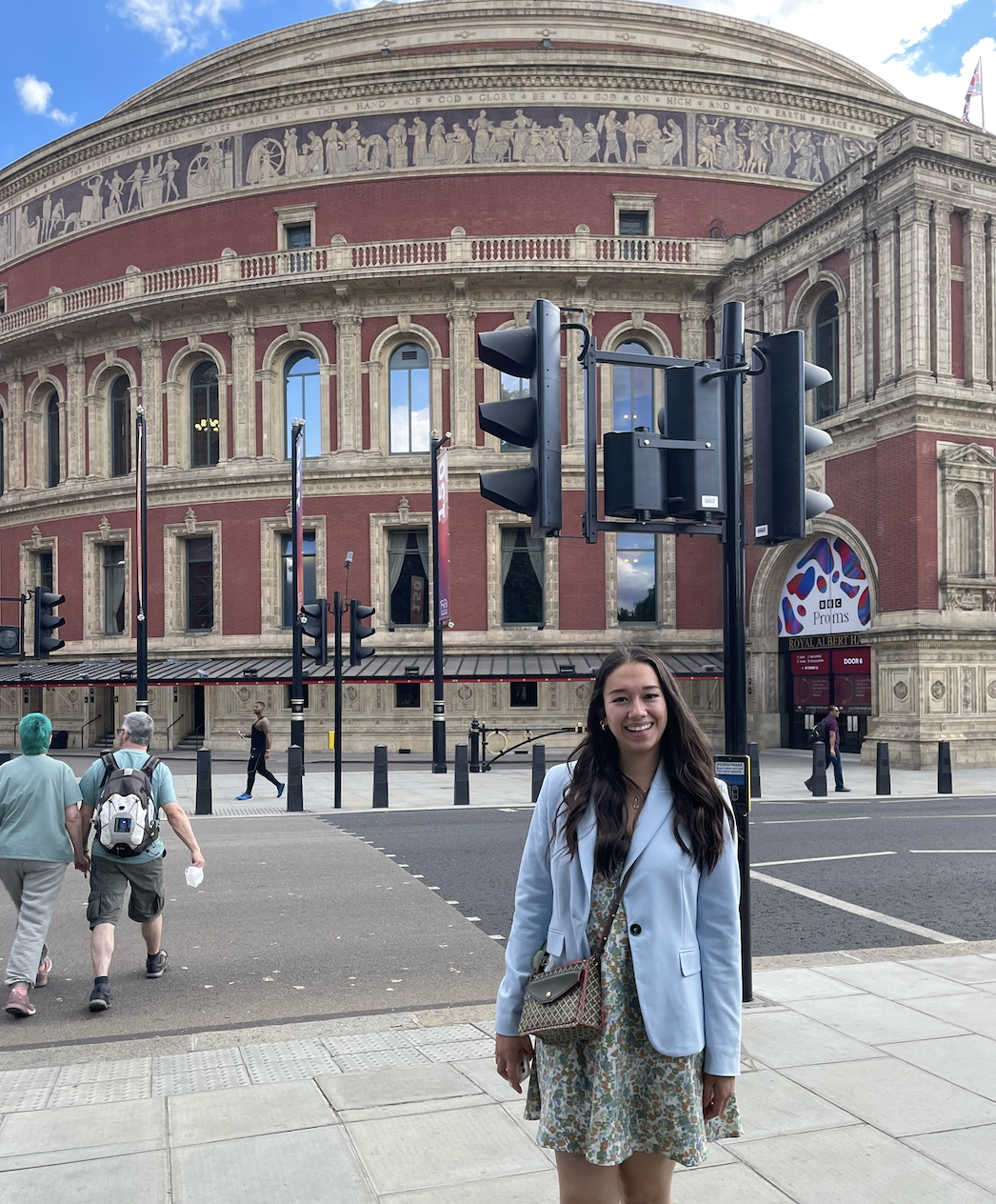
My future career path
After the completion of my Master’s at Imperial, I plan to gain a few years of practical experience as a researcher within the field. Initially, I was primarily focused on specific areas such as immunology and cancer research. However, my horizons have broadened significantly over the last six months at Imperial, and I have been exposed to fascinating areas that I might not have considered otherwise.
I would suggest exploring every possibility and sector in order to learn something new which can guide you towards your true passion. Imperial provides exceptional services that can help you identify your options.
For example, on my course, we have had the opportunity to receive innovation talks from external speakers with similar backgrounds to inspire us about the options this degree can give. Applied Bioscience and Biotechnology is an all-encompassing degree that provides several career paths.
Advice for future students
My experience at Imperial has been challenging yet rewarding and has provided me with the skills and knowledge necessary to pursue a successful career in the field of Biotechnology. My advice for anyone considering applying to this course would be to thoroughly research the course and modules offered to ensure that they align with your interests and career aspirations.
Invest in your future self
Join a global top 10 university, unique in the UK for its specialist focus. Our postgraduate courses open doors to the latest thinking in engineering, science, medicine, business and technology.
